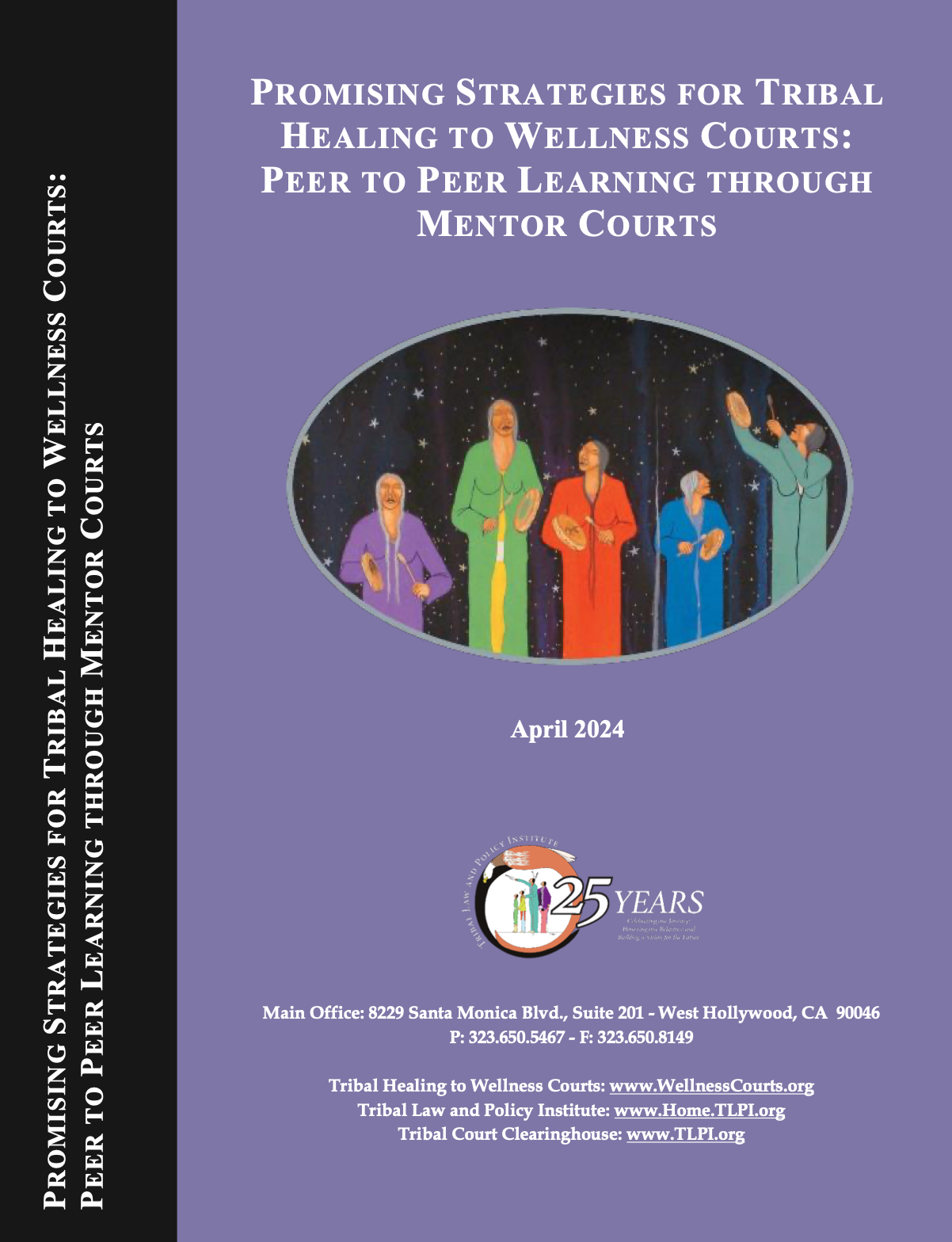Promising Strategies for Tribal Healing to Wellness Courts: Peer to Peer Learning through Mentor Courts
This publication describes the Tribal Law and Policy Institute‘s Mentor Court Program, which was conceived to address a critical gap in the provision of Tribal specific technical assistance.
While Federal and State mentor court programs offer valuable insights, they often lack focus on Tribal-specific issues such as jurisdictional complexities, limited access to resources, heightened rates of substance abuse, co-occurring disorders, cultural values, and historical trauma. Furthermore, the unique sovereign status of Tribal nations, each with its own customs, laws, and cultural needs, necessitates tailored approaches to the development and sustainability of Tribal Healing to Wellness programs.
The peer-to-peer learning that occurs between Mentor Courts and Sister Courts (or mentee courts) is representative of the interconnectedness of indigenous peoples and the significance of shared knowledge.
We believe that the Mentor Court/Sister Court model promotes Tribal sovereignty and self-determination within Indigenous justice systems.

